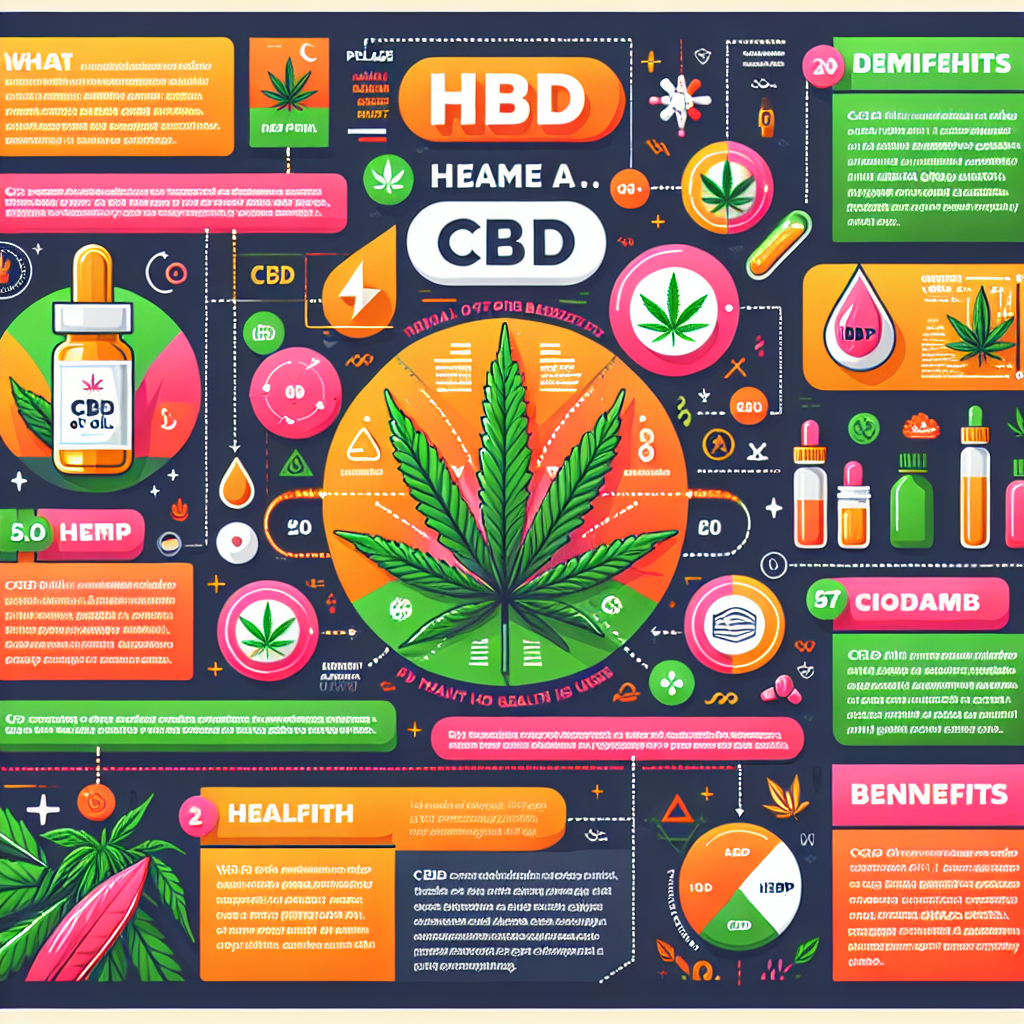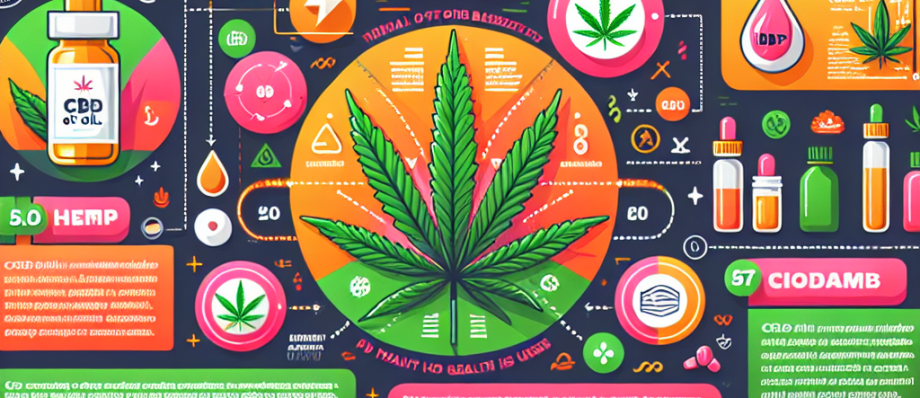What is CBD and Why Should You Use It?
The Benefits of CBD: Exploring its Potential Health Effects
CBD, short for cannabidiol, has been making waves in the health and wellness industry. Derived from the cannabis plant, CBD is a non-psychoactive compound that is known for its potential health benefits. From reducing anxiety to relieving pain, CBD has gained popularity for its therapeutic properties. In this article, we will explore the potential health effects of CBD and why you should consider incorporating it into your daily routine.
One of the most well-known benefits of CBD is its ability to alleviate anxiety and stress. Many people turn to CBD as a natural alternative to prescription medications for anxiety disorders. Research suggests that CBD may help reduce anxiety by interacting with the brain’s receptors for serotonin, a neurotransmitter that regulates mood and social behavior. By promoting a sense of calm and relaxation, CBD can help individuals manage their anxiety and improve their overall well-being.
In addition to its anxiety-reducing properties, CBD has also shown promise in relieving pain. Whether it’s chronic pain or temporary discomfort, CBD may offer a natural solution. Studies have found that CBD can interact with the body’s endocannabinoid system, which plays a role in regulating pain perception. By reducing inflammation and interacting with neurotransmitters, CBD may help alleviate pain and improve quality of life for those suffering from conditions such as arthritis or migraines.
Furthermore, CBD has been found to have potential anti-inflammatory properties. Inflammation is the body’s natural response to injury or infection, but chronic inflammation can lead to various health issues. Research suggests that CBD may help reduce inflammation by inhibiting certain molecules that trigger the inflammatory response. By reducing inflammation, CBD may contribute to overall health and well-being.
Another potential benefit of CBD is its effect on sleep. Many individuals struggle with sleep disorders such as insomnia, which can have a significant impact on their daily lives. CBD has been found to have a calming effect, which may help individuals fall asleep faster and improve the quality of their sleep. By promoting relaxation and reducing anxiety, CBD can be a natural aid for those seeking a good night’s rest.
Moreover, CBD has shown promise in managing symptoms related to neurological disorders such as epilepsy. In fact, the FDA has approved a CBD-based medication for the treatment of certain types of epilepsy. CBD interacts with the brain’s receptors to reduce the frequency and severity of seizures, providing relief for individuals living with epilepsy.
It’s important to note that while CBD has shown potential health benefits, more research is needed to fully understand its effects. Additionally, it’s crucial to consult with a healthcare professional before incorporating CBD into your routine, especially if you are taking any medications or have underlying health conditions.
In conclusion, CBD offers a range of potential health benefits, from reducing anxiety and relieving pain to promoting better sleep and managing symptoms of neurological disorders. As more research is conducted, CBD continues to gain recognition for its therapeutic properties. If you’re considering using CBD, it’s important to do your research, consult with a healthcare professional, and choose high-quality products from reputable sources. With its potential health effects, CBD may be a valuable addition to your wellness routine.
CBD vs. THC: Understanding the Difference and How CBD Works

CBD vs. THC: Understanding the Difference and How CBD Works
If you’ve been keeping up with the latest health trends, you’ve probably heard about CBD. But what exactly is CBD, and why should you consider using it? To answer these questions, it’s important to understand the difference between CBD and THC, as well as how CBD works in the body.
CBD, short for cannabidiol, is a compound found in the cannabis plant. Unlike THC, another well-known compound found in cannabis, CBD does not have psychoactive effects. This means that it won’t get you high or alter your state of mind. Instead, CBD is known for its potential therapeutic benefits.
THC, or tetrahydrocannabinol, is the compound responsible for the psychoactive effects of cannabis. It’s what gives you that euphoric feeling commonly associated with marijuana use. While THC can have its own therapeutic properties, it’s important to note that it is still illegal in many places and can have unwanted side effects.
CBD, on the other hand, is legal in many countries and has gained popularity for its potential health benefits. It is commonly used to help with a variety of conditions, including chronic pain, anxiety, insomnia, and even epilepsy. Many people also use CBD as a natural alternative to traditional medications, as it is generally well-tolerated and has few side effects.
So how does CBD work in the body? Our bodies have an endocannabinoid system (ECS), which plays a crucial role in regulating various functions such as sleep, mood, appetite, and immune response. The ECS consists of receptors, enzymes, and endocannabinoids, which are naturally occurring compounds similar to cannabinoids.
When we consume CBD, it interacts with the ECS by binding to receptors in the body. This interaction can help regulate the balance of various bodily functions and promote overall well-being. CBD is believed to have anti-inflammatory, analgesic, and neuroprotective properties, which may explain its potential therapeutic effects.
One of the reasons why CBD has gained so much attention is its ability to provide relief without the psychoactive effects of THC. This makes it an appealing option for those who want to experience the potential benefits of cannabis without getting high. Additionally, CBD is non-addictive and does not have the same risk of overdose as opioids or other medications.
It’s important to note that while CBD is generally considered safe, it can interact with certain medications. If you’re currently taking any prescription medications, it’s always a good idea to consult with your healthcare provider before adding CBD to your routine.
In conclusion, CBD and THC are two compounds found in the cannabis plant, but they have different effects on the body. CBD does not have psychoactive effects and is known for its potential therapeutic benefits. It interacts with the body’s endocannabinoid system to help regulate various functions and promote overall well-being. CBD is legal in many countries and is commonly used to help with conditions such as chronic pain, anxiety, and insomnia. However, it’s important to consult with a healthcare provider before using CBD, especially if you’re taking any medications.
CBD Products: A Comprehensive Guide to Choosing the Right Option for You
CBD Products: A Comprehensive Guide to Choosing the Right Option for You
CBD, short for cannabidiol, has become a buzzword in recent years. From oils to gummies, CBD products are popping up everywhere, promising a wide range of health benefits. But what exactly is CBD, and why should you consider using it?
CBD is a compound found in the cannabis plant. Unlike its cousin THC, CBD does not have psychoactive effects, meaning it won’t get you high. Instead, CBD is known for its potential therapeutic properties. It interacts with the body’s endocannabinoid system, which plays a role in regulating various bodily functions.
One of the main reasons people turn to CBD is for its potential to alleviate pain and inflammation. Studies have shown that CBD may help reduce chronic pain by interacting with receptors in the brain and immune system. It’s no wonder that CBD has gained popularity among those suffering from conditions like arthritis or fibromyalgia.
But pain relief is not the only benefit CBD offers. Many users report improved sleep quality after incorporating CBD into their routine. CBD may help regulate sleep patterns and reduce insomnia, making it an attractive option for those struggling with sleep disorders.
Another area where CBD shows promise is in managing anxiety and stress. Research suggests that CBD may help reduce anxiety by affecting the brain’s receptors for serotonin, a neurotransmitter that plays a role in mood regulation. This has led many people to turn to CBD as a natural alternative to traditional anxiety medications.
When it comes to choosing the right CBD product for you, there are several factors to consider. First and foremost, you’ll want to decide on the method of consumption. CBD is available in various forms, including oils, capsules, edibles, topicals, and even vape pens. Each method has its own advantages and disadvantages, so it’s important to choose one that suits your preferences and lifestyle.
If you’re looking for fast-acting relief, CBD oils or tinctures may be your best bet. These are taken sublingually, meaning you place a few drops under your tongue and hold them there for a minute or two before swallowing. This allows the CBD to be absorbed directly into the bloodstream, providing quick results.
On the other hand, if you prefer a more discreet option, CBD capsules or edibles might be a better choice. These products are pre-dosed, making it easy to know exactly how much CBD you’re consuming. They also offer a longer-lasting effect, as the CBD is released slowly as the capsule or edible is digested.
For localized pain or skin conditions, CBD topicals like creams or balms can be applied directly to the affected area. These products provide targeted relief and are ideal for those who don’t want to ingest CBD orally.
When shopping for CBD products, it’s crucial to look for third-party lab testing. This ensures that the product has been tested for purity and potency, giving you peace of mind that you’re getting a high-quality product. Additionally, you’ll want to check the CBD concentration and dosage instructions to ensure you’re getting the right amount for your needs.
In conclusion, CBD offers a natural and potentially effective solution for various health concerns. From pain relief to improved sleep and reduced anxiety, CBD has gained recognition for its therapeutic properties. When choosing a CBD product, consider your preferred method of consumption and look for reputable brands that provide third-party lab testing. With the right CBD product, you can embark on a journey towards improved well-being.
Conclusion
CBD, or cannabidiol, is a compound derived from the cannabis plant. It is known for its potential therapeutic benefits, including pain relief, reducing anxiety and depression, alleviating cancer-related symptoms, and improving sleep quality. CBD is non-intoxicating and does not produce the “high” associated with marijuana. It interacts with the body’s endocannabinoid system, which plays a role in regulating various physiological processes. While more research is needed, CBD shows promise as a natural alternative for managing certain health conditions.
![]()



